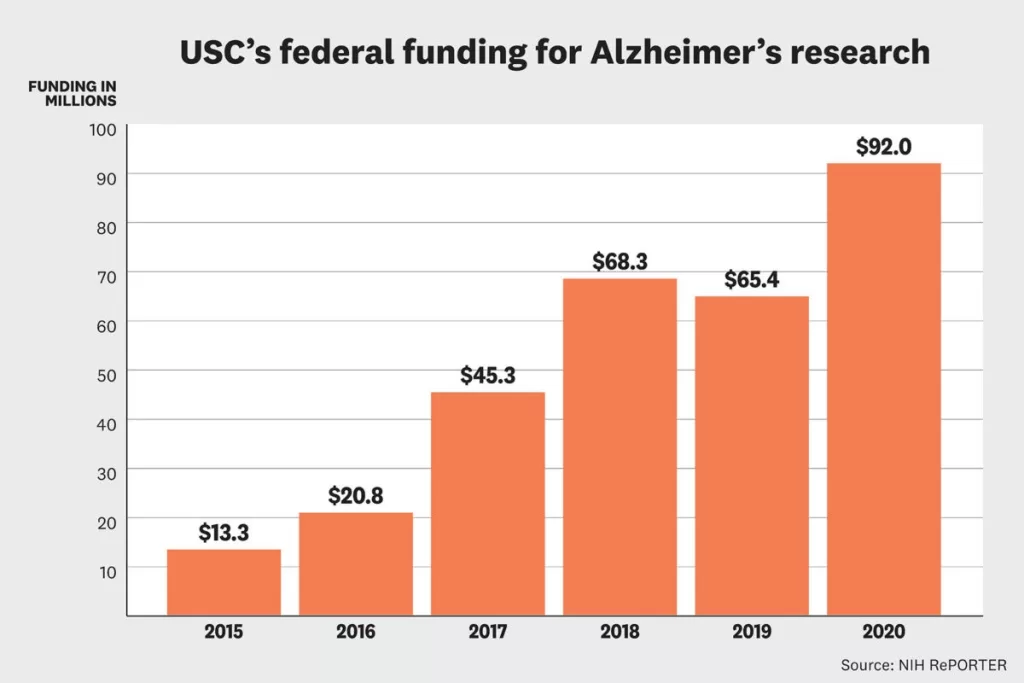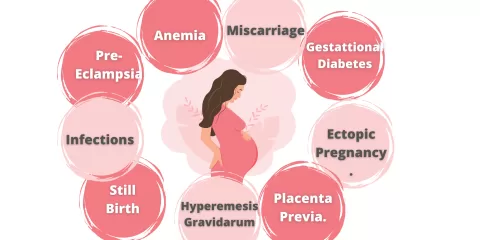In a significant advancement for Alzheimer’s research, a UVA researcher has been awarded a $200,000 grant aimed at unraveling the complexities of Alzheimer’s disease. Dr. Helen Wang, a dedicated postdoctoral researcher at the University of Virginia, will leverage this Alzheimer’s research grant to delve into the mechanism of ER-associated degradation (ERAD), a critical factor linked to protein degradation in Alzheimer’s. This funding from the Alzheimer’s Association underscores the urgent need for innovative solutions as the number of individuals affected by Alzheimer’s is expected to nearly double by 2050. As Dr. Wang explores how manipulating ERAD could potentially slow the progression of this devastating disease, the hope is to pave the way for future therapeutic methods. Such research efforts are crucial in the ongoing battle against Alzheimer’s, which impacts millions of families across the nation.
Exploring innovative avenues in dementia research, a recent grant awarded to a researcher from the University of Virginia marks a crucial step forward in understanding Alzheimer’s disease. The significant funding, aimed at investigating the intricate processes of cellular protein regulation, will be spearheaded by Dr. Helen Wang, a postdoctoral researcher focused on mechanisms like ER-associated degradation. As Alzheimer’s disease continues to escalate in prevalence, research initiatives like these highlight the vital role of dedicated funding sources, notably from the Alzheimer’s Association, in seeking solutions. By targeting the biological underpinnings of protein quality control, the research aims to develop targeted therapies that could effectively intervene in the disease’s progression. This milestone represents a beacon of hope not just for the scientific community, but also for the millions of individuals and families grappling with the challenges posed by Alzheimer’s.
The Importance of Alzheimer’s Research Grants
Alzheimer’s disease is a complex neurodegenerative disorder that affects millions, making research grants crucial for advancing our understanding and treatment of the condition. Funding opportunities, such as the recent $200,000 grant awarded to Dr. Helen Wang from the Alzheimer’s Association, play a pivotal role in empowering researchers to explore novel mechanisms of the disease. These grants not only provide the necessary financial backing but also encourage innovation and discovery within the scientific community.
The Alzheimer’s Association is at the forefront of funding dementia research, having invested over $430 million in various projects aimed at accelerating breakthroughs. By supporting emerging scientists like Dr. Wang, they ensure that vital studies on processes such as ER-associated degradation (ERAD) receive the attention and funding they deserve. This can significantly enhance our approach to tackling Alzheimer’s disease and improving quality of life for those affected.
Exploring ER-Associated Degradation (ERAD)
ER-associated degradation (ERAD) is a critical cellular mechanism responsible for identifying and eliminating misfolded or dysfunctional proteins. As Dr. Helen Wang notes in her research, understanding how ERAD operates could illuminate pathways that contribute to protein accumulation—a hallmark of Alzheimer’s disease. By dissecting the intricacies of ERAD, researchers aim to discover how manipulating this process might slow disease progression and improve patient outcomes.
Dr. Wang’s focus on ERAD holds significant promise in the context of Alzheimer’s research. Investigating how protein degradation affects brain health may lead to innovative therapeutic strategies. By targeting ERAD, there is potential to intervene before the detrimental effects of protein buildup manifest, providing a proactive approach to managing Alzheimer’s effects on cognition.
Dr. Helen Wang’s Vision for Alzheimer’s Research
Dr. Helen Wang’s research is characterized by a forward-thinking approach, emphasizing the gradual translation of laboratory findings into clinical applications. With her work supported by the Alzheimer’s Association funding, she faces the challenge of developing targeted strategies to harness ERAD for therapeutic purposes. Her commitment to this field reflects a broader movement within the scientific community to bridge the gap between basic research and tangible clinical advancements.
Wang’s perspective that progress in Alzheimer’s research is a lengthy process signifies the importance of persistence in scientific inquiry. As she and her peers delve into the mechanisms of protein degradation, they remain hopeful that their discoveries could lead to effective treatments that address not only the symptoms but also the underlying causes of Alzheimer’s. This methodical approach is essential for ensuring that innovations are not only groundbreaking but also safe and effective for patients.
The Role of the Alzheimer’s Association in Research Advancement
The Alzheimer’s Association is a crucial player in the global fight against Alzheimer’s disease, providing substantial funding to research projects like those led by Dr. Wang at the University of Virginia. As the leading non-profit funder of dementia research, the Association’s commitment to investing over $430 million into groundbreaking studies exemplifies their dedication to accelerating treatment discoveries. This level of financial support enables researchers to explore innovative ideas and refine methodologies that could lead to significant health breakthroughs.
In addition to funding, the Alzheimer’s Association fosters collaboration among researchers, creating an environment where innovative ideas can flourish. They understand that addressing the complexities of Alzheimer’s requires diverse perspectives and expertise, which is why they prioritize investing in emerging scientists. By supporting transformative research, they contribute to a collective effort that may ultimately lead to effective strategies for preventing and treating Alzheimer’s disease.
The Implications of Protein Degradation in Alzheimer’s Disease
Protein degradation is a key factor influencing the progression of Alzheimer’s disease. Accumulation of aberrant proteins in the brain disrupts cellular functions and contributes to neurodegeneration. As Dr. Wang focuses on understanding the ER-associated degradation pathway, her research could shed light on why some proteins fail to be degraded properly, leading to toxic buildup and cognitive decline. Pinpointing these mechanisms is crucial for developing interventions that could mitigate the effects of Alzheimer’s.
Moreover, exploring protein degradation pathways such as ERAD presents opportunities to identify biomarkers for Alzheimer’s, enhancing early detection and intervention strategies. If researchers like Dr. Wang succeed in manipulating these pathways, they may unlock new avenues for treatment that can slow disease progression. This highlights the urgency and relevance of understanding the relationship between protein homeostasis and Alzheimer’s.
Advancements in Therapeutics for Alzheimer’s Disease
The ongoing research into ER-associated degradation by Dr. Wang signals a potential shift in how therapeutic strategies for Alzheimer’s disease could be developed. As knowledge about protein degradation mechanisms deepens, there’s hope for creating drugs that target these processes directly, thereby preventing the damage associated with Alzheimer’s pathology. This anticipatory approach may revolutionize the way medical professionals manage and treat patients with Alzheimer’s.
In addition, advancements in therapeutics could also lead to the development of personalized treatment plans that take into account individual variations in protein metabolism and degradation. By leveraging insights from studies funded by the Alzheimer’s Association, researchers aim to create tailored interventions that not only prolong cognitive health but ultimately improve the quality of life for those living with Alzheimer’s.
Community Impact of Alzheimer’s Research Initiatives
The research initiatives conducted by scientists like Dr. Helen Wang play a vital role in community health, particularly for families impacted by Alzheimer’s disease. The potential outcomes of her investigations into ER-associated degradation could lead to hopeful narratives, where families witness advancements that directly affect their loved ones. Such research not only advances scientific understanding but builds communal resilience against the growing challenges posed by Alzheimer’s.
Furthermore, the Alzheimer’s Association’s efforts in funding research contribute to increased public awareness and education about the disease. Through initiatives that promote understanding of Alzheimer’s and its implications, community members are empowered to take proactive steps in prevention and care. This holistic approach to community health underscores the importance of research in fostering a more informed and supportive environment for those grappling with Alzheimer’s.
Future Directions in Alzheimer’s Disease Research
The future of Alzheimer’s research hinges on the continued support and funding for innovative scientific endeavors. With Dr. Wang’s focus on ER-associated degradation, there is potential for groundbreaking discoveries that could redefine current paradigms. The interplay between research initiatives and funding from organizations like the Alzheimer’s Association will be pivotal in shaping the landscape of Alzheimer’s treatment.
Emerging technologies and methodologies will also likely play a significant role in future Alzheimer’s research. As scientists like Dr. Wang tap into new areas of inquiry within protein degradation, we may see advancements that not only enhance our current understanding but also pave the way for novel therapeutic approaches. The trajectory of Alzheimer’s research is thus filled with promise, as increased knowledge leads to more effective solutions for managing this complex disease.
Collaboration in Alzheimer’s Research
Collaboration is a cornerstone of successful Alzheimer’s research, enabling scientists to leverage diverse expertise and resources. Dr. Helen Wang’s work demonstrates the importance of interdisciplinary approaches in studying complex mechanisms like ER-associated degradation. By working alongside fellow researchers, medical professionals, and organizations such as the Alzheimer’s Association, researchers can accelerate the pace of discovery and innovation.
Partnerships extend beyond individual laboratories; they encompass collaborations with healthcare providers, policymakers, and advocacy groups. This collective effort can lead to more comprehensive strategies for tackling Alzheimer’s disease, as insights from multiple sectors come together to inform research directions and clinical practices. As the fight against Alzheimer’s continues, unified collaboration will be crucial for overcoming barriers and achieving meaningful advancements.
Frequently Asked Questions
What is the significance of the Alzheimer’s research grant awarded to UVA researcher Dr. Helen Wang?
The Alzheimer’s research grant of $200,000 awarded to UVA researcher Dr. Helen Wang is significant because it funds essential investigations into ER-associated degradation (ERAD), a protein degradation mechanism that may impact the progression of Alzheimer’s disease. The Alzheimer’s Association’s support highlights the importance of innovative research in combating this widespread condition affecting millions.
How does ER-associated degradation relate to Alzheimer’s research grants?
ER-associated degradation (ERAD) is crucial to Alzheimer’s research as it involves the regulation of protein quality within cells. Understanding ERAD can lead to breakthroughs in Alzheimer’s treatments, prompting organizations like the Alzheimer’s Association to provide grants to researchers like Dr. Helen Wang at UVA, aimed at slowing the disease’s progression through better protein management.
What are the long-term goals of Dr. Helen Wang’s Alzheimer’s research grant project?
Dr. Helen Wang’s long-term goals with her Alzheimer’s research grant include exploring ways to manipulate ER-associated degradation (ERAD) to potentially develop drugs and therapeutic methods that can slow down Alzheimer’s disease. This research aims to translate laboratory findings into clinical applications that could significantly improve patient outcomes.
Why is the Alzheimer’s Association funding vital for researchers like Dr. Helen Wang?
The Alzheimer’s Association funding is vital for researchers like Dr. Helen Wang because it enables them to conduct groundbreaking studies on mechanisms like ER-associated degradation (ERAD), which are essential for understanding and combating Alzheimer’s disease. With over $430 million invested in similar projects, this funding accelerates treatment breakthroughs and supports emerging scientists in addressing the Alzheimer’s crisis.
How does protein degradation in Alzheimer’s impact the development of treatments?
Protein degradation in Alzheimer’s plays a crucial role in developing treatments, as protein accumulation is linked to the disease’s progression. Research funded by grants like the one received by UVA’s Dr. Helen Wang focuses on ER-associated degradation (ERAD) to understand how manipulating these processes could lead to effective therapies and potentially slow Alzheimer’s disease.
| Key Points |
|---|
| Dr. Wang received a $200,000 Alzheimer’s research grant from the Alzheimer’s Association. |
| The grant will be used to study ER-associated degradation (ERAD), a process that may relate to protein accumulation in Alzheimer’s. |
| The goal is to manipulate ERAD to potentially slow the progression of Alzheimer’s disease. |
| The Alzheimer’s Association has invested over $430 million in research to accelerate treatment breakthroughs. |
| Dr. Wang aims to develop future therapies that may help patients with Alzheimer’s disease. |
Summary
The Alzheimer’s research grant awarded to Dr. Wang at the University of Virginia marks a significant step toward unraveling the complexities of Alzheimer’s disease. This funding will facilitate critical investigations into protein degradation mechanisms, which may slow disease progression and lead to new therapies. As the Alzheimer’s Association continues to drive innovation in dementia research, support for emerging scientists like Dr. Wang is essential to combat the increasing prevalence of Alzheimer’s and provide hope for millions affected by this condition.
The content provided on this blog (e.g., symptom descriptions, health tips, or general advice) is for informational purposes only and is not a substitute for professional medical advice, diagnosis, or treatment. Always seek the guidance of your physician or other qualified healthcare provider with any questions you may have regarding a medical condition. Never disregard professional medical advice or delay seeking it because of something you have read on this website. If you believe you may have a medical emergency, call your doctor or emergency services immediately. Reliance on any information provided by this blog is solely at your own risk.







